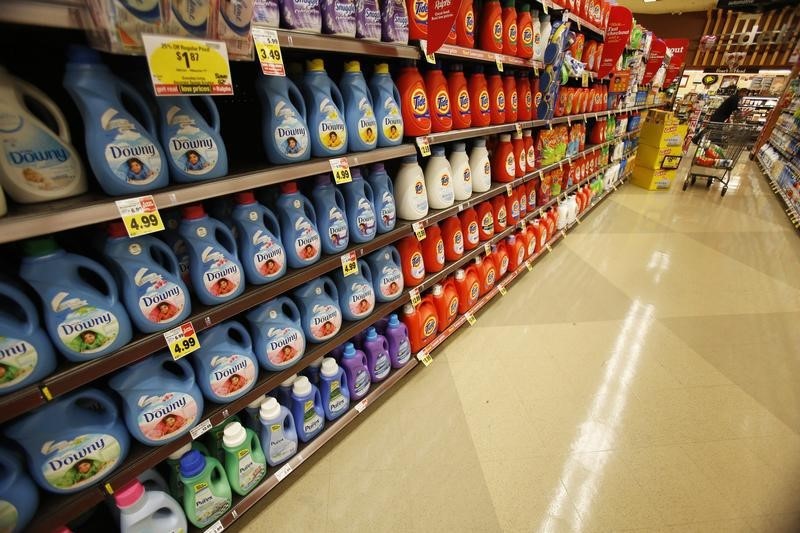Exane BNP Paribas (OTC:BNPQY) adjusted its outlook on Procter & Gamble (NYSE: NYSE:PG) by increasing the price target to $192 from the previous $180.
The firm maintained its Outperform rating on the stock, signaling confidence in the company's performance despite some market headwinds.
Procter & Gamble, which counts China as its second-largest market, making up less than 10% of its sales, has been facing a challenging retail environment in the region. Retail sales in China for August grew by 2.1% year-over-year, which was slightly lower than the expected 2.5%. Notably, the cosmetics segment saw a decline of 6.1% year-over-year.
The analyst from Exane BNP Paribas noted that the August retail sales in China decelerated from July, which had seen a 2.7% increase and a 6.1% decrease in cosmetics sales, respectively.
The slowdown is consistent with cautious commentary from management across the industry, including companies like Procter & Gamble, Colgate-Palmolive (NYSE:CL), and Coca-Cola (NYSE:KO).
Despite the soft market data from China, the analyst anticipates a mid-single to high-single digit percentage decline in Procter & Gamble's China business for the fiscal first quarter ending in September.
The projection is reportedly in line with what the market has been expecting.
Furthermore, the analyst pointed out that Procter & Gamble's stock is trading at less than 25 times price-to-earnings ratio, which is on par with the household and personal care group average.
In other recent news, Procter & Gamble reported a 4% increase in organic sales growth for the fiscal year 2024, with core earnings per share (EPS) rising by 12% to $6.59. The company's e-commerce sales also saw a 9% increase, now accounting for 18% of total sales.
Despite facing challenges in China, the Middle East, and Argentina, P&G remains committed to its strategies of superiority, productivity, constructive disruption, and an empowered organization to foster future growth.
On a different note, companies worldwide are feeling the impact of China's economic slowdown. Starbucks (NASDAQ:SBUX), General Motors (NYSE:GM), and various technology firms have expressed concerns about the tough Chinese market conditions.
Notably, Apple (NASDAQ:AAPL) reported a steeper-than-expected 6.5% fall in sales in China, which represents a fifth of the company's total revenue.
In response to the slowdown, the Chinese government has introduced consumer-focused stimulus measures. However, analysts, including Quincy Krosby, chief global strategist for LPL Financial (NASDAQ:LPLA), have expressed concerns over the adequacy of these measures to broaden the economic base.
This article was generated with the support of AI and reviewed by an editor. For more information see our T&C.
